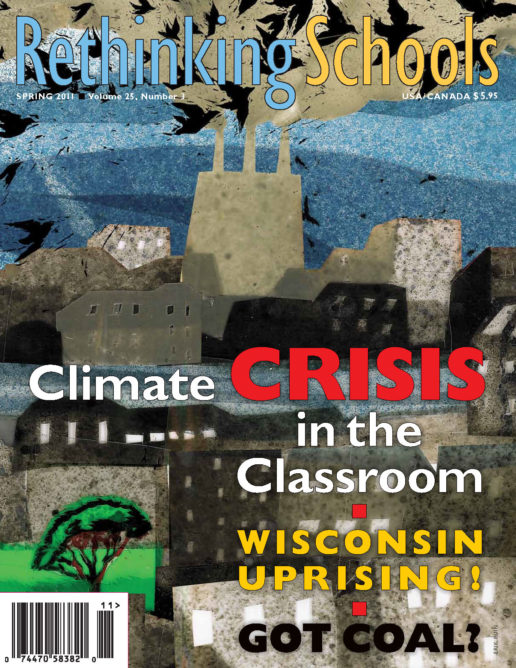Good Stuff 25.3
Playing for Keeps: Life and Learning on a Public School Playground
By Brenda S. Engel, Deborah Meier, and Beth Taylor
(Teachers College Press, 2010)
Dramatic Learning in the Primary School
By Shirley Brice Heath and Shelby Wolf
(Creative Partnerships, 2005)
The Usborne Detective’s Handbook
Illustrated by Colin King
(Usborne, 2009)
A History of the World in 100 Objects
By Neil MacGregor
(The British Museum, 2011)
I have been writing the Good Stuff column for years. It has been a pleasure to write, but fresh voices are always welcome in sustaining the life of a progressive journal. At this point I will write every other column, and other voices, other resources will enrich our work. I’m looking forward to learning from them—after all, I’m only 73.
I have wanted, through my recommendations, to suggest that, in addition to reading about education, teachers should be organic intellectuals and leaders in the formation of policy and creation of curriculum. We also should be active, not merely responsive, to what is currently happening in the world of ideas and actions and use our knowledge in the service of the communities we serve. We should enrich our struggles for social and economic justice by reading widely to learn what people beyond schools, classrooms, and the department of education think and suggest. To do this we have to constantly renew ourselves through our own explorations, inquiries, and discoveries. And we have to be translators as well—turning the sometimes abstract and complex things that we learn into practical, accessible experiences and ideas to challenge our students and ourselves.
Here are my current suggestions:
Playing for Keeps is a healthy reminder that schools should not alienate children from the childhood joy of play free from adult ambition. It is a refreshing book that can help remind the fools who run the schools that to be a child can be a wonderful, rewarding pleasure that sets the groundwork for a healthy and generous adult life.
Dramatic Learning in the Primary School, a boxed set of four short booklets, takes playground play into the classroom and shows how powerful the art of drama can be as a means of personal, social, and emotional growth for young children. It is quite special.
The Usborne Detective’s Handbook gets into the dark corners. Fully illustrated and often hilarious, it takes youngsters (and adults, too) into the world of crime investigation. It is full of activities for students; with a bit of adjustment, it can be used throughout the grades.
I am halfway through my current favorite, A History of the World in 100 Objects. This 700-page book traces 100 objects in the British Museum’s collections—dated from 9,000 B.C. to 2010—to recreate and illuminate history and human culture. It makes me wish I was in an elementary or high school classroom again—there is so much here to share, teach, and connect to the lives and histories of students. (Also available online: www.bbc.co.uk/ahistoryoftheworld.)
And finally, in addition to reading Rethinking Schools, join with friends and take collective subscriptions to the New York Review of Books, The Nation, The Progressive, and my absolute favorite, the Times Literary Supplement, a weekly, rich resource of new books and short essays that has helped shape my reading and thinking for years.

